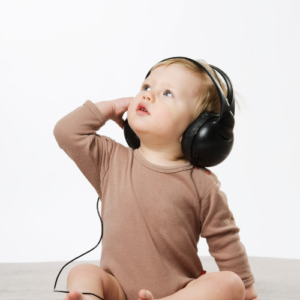Introduction
Lullabies and children’s songs can work wonders on little ones who need a moment to wind down. But, not just any song will do—only certain types of music are truly relaxing for your child. Here are some tips on how you can help your kid relax with music:

Children’s music can help your child calm down.
Music can be a great way to help your child relax. When you play music, the rhythm and melody of the song can help your child calm down. Music can also be used to soothe kids who are upset or frustrated or who need help falling asleep at night.
Some people say that listening to music helps children focus better on their schoolwork, which is important because being able to concentrate is critical for learning new skills. In addition, some say that playing music makes them more creative—this may not apply directly to children but it might still be worth considering if you want your child’s mindset expanded! Finally, many people say listening in groups helps make them feel more social—and we know this is important for growing up happily!
Put a positive spin on the music.
As a parent, it’s important to be aware of the music that you play around your children. Music can have a powerful effect on their moods and emotions, so it’s good to put a positive spin on the songs you choose for them. For example, if there is an angry song playing in the background while your child is trying to do homework or take an exam, then this will only increase their stress levels and make it even harder for them to concentrate.
If you want your children to relax after school or during nap time, then try putting on soothing classical music that uses instruments such as harpsichords and flutes instead of synthesizers and electric guitars.
It’s important to help set a good tone for the night and get kids in their sleeping mindsets.
It’s important to help set a good tone for the night and get kids in their sleeping mindsets. Music can help with this. It can be calming, relaxing, and calming for children.
Choose relaxing music that does not have lyrics.
While it may be tempting to play music with words, especially since you do not want your child to fall asleep and miss the lyrics (and thus the story), it’s best to choose music that does not have lyrics. Not only are most of these songs too loud for a baby or young child to hear, but even if they could listen in peace, the words themselves might be distracting.
Keep the volume low to avoid over-stimulation.
When you are playing music, keep the volume low to avoid over-stimulation.
- Consistent volume: Don’t change the volume suddenly or frequently; this can be very confusing.
- Avoid sudden loud sounds: Avoid sudden changes in volume and set the background music at a level so it is not irritating for your child. If your child does not like the sound of classical music (or any other genre), then try to find another type of relaxing music that they do like instead — such as soft rock, light pop/dance/electronic-based music, or jazz — and adjust accordingly.* Do not use heavy metal or hard rock.* Do not play extreme genres such as heavy metal or punk rock while children are trying to relax at night before bedtime.*
Music is a great way to ease into sleep.
Music can help you and your child relax.
If you’re looking for a way to ease into sleep, music is a great option. It’s calming, soothing, and has been scientifically proven to relieve anxiety in adults. It also helps children relax—and once they feel relaxed enough to close their eyes, they’ll be able to drift off into dreamland much faster than if they were lying there wide awake in bed (uncomfortable).
Music will help your kid get more sleep at night.
With all of the other things on a parent’s plate during the day—work schedules, school activities, meals—getting quality time with your little one isn’t always possible as it once was when they were babies or toddlers or preschoolers. Music is one way that parents can spend some quality time with their children before bed without having another argument about brushing teeth or taking off pajamas; instead of reading aloud from books or telling stories at bedtime (which only works occasionally), playing music together allows both parties’ brains something else entirely: relaxation!
Conclusion
We hope you found this article helpful in figuring out what kind of music might be best for your child, and that you now have an easy way to find it! Music can bring a lot of joy into our lives, but sometimes it can be hard to know where to begin. We hope these tips will help guide you through the process so that you can get started right away.
